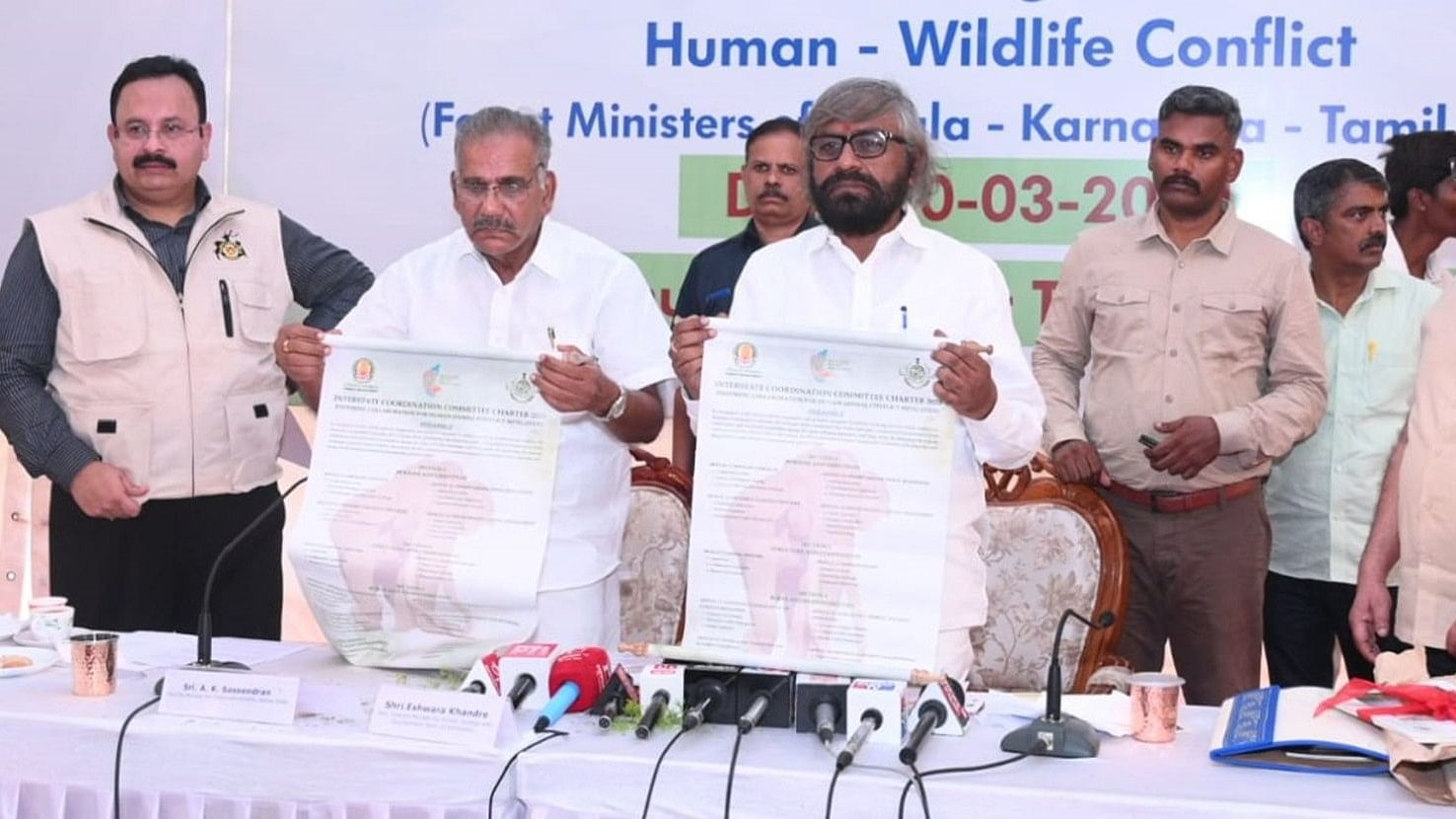
Karnataka Forest Minister Eshwar Khandre and his Kerala counterpart A K Saseendran release a charter on conflict mitigation, during a tripartite meeting at Bandipur in Chamarajanagar district on Sunday.
Credit: DH Photo
Karnataka, Kerala and Tamil Nadu on Sunday resolved to come up with a joint mechanism to check man-animal conflict and protect wildlife habitats through proactive cooperation and knowledge sharing.
Forest and Environment Minister Eshwar Khandre on Sunday said the three states have decided to work in tandem for long-term conservation measures that go beyond state borders.
He was speaking at the inter-state Forest Ministers Coordination meeting at Bandipur, Gundlupet taluk, Chamarajanagar district. Kerala Forest Minister A K Saseendran and higher officials of the Forest department of all the three states were present.
The meeting comes in the aftermath of an elephant radio collared by Karnataka trampled a resident of Wayanad. The tusker returned to Karnataka even as the Kerala forest officials started an operation to capture it.
During the meeting, the minister suggested a standard operating procedure for joint operation.
“It’s not any direction from the Centre but a joint initiative of the three southern states that has led to this meeting. For centuries, wild animals move freely from one forest to another. They can’t be limited by any border. We discussed the issue of damage caused by wildlife to lives and crops. We will come up with concrete measures soon,” Khandre said.
Noting that increasing population of humans and wildlife and expansion of human habitats near protected areas were leading to rise in the number of conflicts, he said joint efforts were needed to protect the interest of people and animals.
Khandre said the meeting also discussed the problem of invasive species Lantana camara and Senna spectabilis. “We have laid emphasis on effective use of technology to assess the problem and check the spread of the invasive speeds,” he said.
Khandre proposed elevating interstate interactions to the government and senior levels. The meeting focussed on the Nilgiri biosphere reserve, covering Karnataka, Kerala and Tamil Nadu, and highlighted joint efforts in synchronised population estimations of elephants and vultures in 2023.
In a subsequent development, Minister Khandre unveiled the interstate Coordination Committee Charter 2024, marking a commitment for collaborative efforts in conflict mitigation across the states.
The Charter emphasises the shared responsibility of protecting natural resources and the balance between wildlife preservation and human safety.
“It calls for a harmonious blend of compassion and science-based measures, grounded in the understanding that we are stewards of the planet,” he said.
Additional Chief secretaries, Principal Chief Conservators of Forest, Chief wildlife wardens and officials of all the three states were present.
In Thiruvananthapuram, sources in the forest department said an agreement was signed by the states to ensure timely exchange of information on wild animal movement.
“The other decisions were to ensure swift actions in case of wild animals entering human settlements, improve the infrastructure to mitigate man-animal conflicts and identify reasons for wild animals entering human settlements and take corrective measures,” the source said.